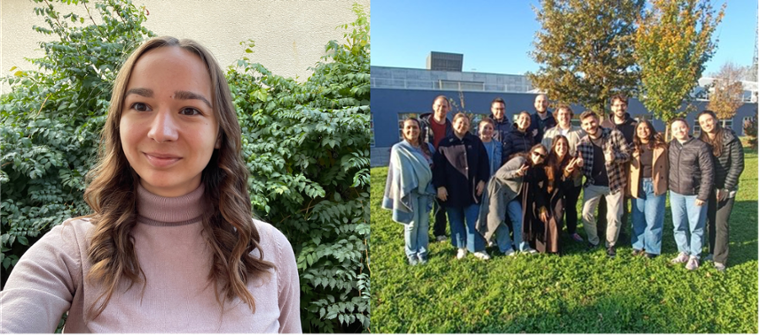Thirty-five years ago, the European Association for International Education (EAIE) became the largest Higher Education association on the continent. This year, the organisation is hosting its most important event ever in Toulouse for 4 days with more than 7000 attendees. For the first time, EUTOPIA and more than 20 European Universities Alliances will gather around the European Commission stand at the EAIE from 18 to 20 September 2024. Other Alliances will be represented by their university members at their own booths.
Right before the opening, on 17 September, European Universities Alliances, Université de Toulouse and La Région Occitanie / Pyrénées-Méditerranée welcomed an event at the Occitanie Region headquarters called "Internationalisation of European Universities Alliances: the new frontiers" divided in 3 panels, with one dedicated to the Internationalisation and European Universities alliances. This session which saw the participation of higher education experts and European Alliances representatives including EUTOPIA Secretary-General Mattia Bellotti highlighted the necessity to "make our future better".
Vanessa Debiais-Sainton, Head of Unit Higher Education, Directorate General for Education, Youth, Sport and Culture (DG EAC), said that the European Commission was stressing the priorities of the new governance of the European Commission. She mentioned Mario Draghi's report and the importance of having more graduates in Europe, especially in green technologies and lifelong learning. The European Universities Initiative can help in creating new cohorts thanks to the synergies that are generated between European universities. The European Commission has understood the need to create European Degrees, particularly in engineering, but in all other disciplines too with the aim to make universities more attractive. Vanessa Debiais-Sainton drew a parallel with the Olympic Games: it is about propelling European higher education institutions to the very first rank. Concerning the international dimension, the priority is to enlarge the Union to the Western Balkans and to help the 35 Ukrainian institutions associated with European universities. A new pact for the Mediterranean countries and enhanced cooperation with India, Latin America, and the Caribbean is also on the agenda. She stressed the focus on the issue of funding to support all this and insisted that Member States must provide additional funding to the European Commission for it. In the end, she called out the universities to lobby their ministries.
Carle Bonnafous-Murat, from the French Conference of Rectors, noted that delegations from universities in Colombia and Argentina were wondering how to connect with European alliances. The answer was the following: an approach by themes, such as biodiversity, for example. Some alliances are thematic and others general, but for all the question of an approach by topics is probably a rich path for future developments. He mentioned as a last point the recent creation of brands by alliances and wondered how these supra-brands dialogue with the identities of each of the member universities.
Marie Azuelos, Deputy Vice President for International Affairs at Sciences Po of the CIVICA alliance, started her presentation by asking one question: "Why insist on the international dimension of the EU Alliances?". It is certainly about creating a critical mass of institutions. She noted that the alliances first focused on building a supra-national institutionality. Now, after almost 5 years, she said that the alliances are reaching a phase of maturity. She took the example of the internationalisation for CIVICA which was about visibility, diversification, developing innovation together and, finally, defending academic freedom worldwide. CIVICA focuses on two dimensions: academic and non-academic. The first dimension is all about dialogue in the social sciences. Regarding this second aspect, it is about diversifying the economic model of the alliance internationally. As for the challenges, she returned to the question of the budget availability to support the internationalisation of European universities and to strengthen the international cooperation of the European Union.
Mattia Bellotti, Secretary-General of EUTOPIA, focused on the very international characteristics of the alliance, which began with the cooperation of the Western Balkans and then the development of cooperation on the five continents. With them, he insisted that shared values are at the heart of cooperation: academic freedom and democracy. It is about multiplying international opportunities for European universities. How to proceed to achieve this goal? EUTOPIA has a catalogue of initiatives (Education, research, and outreach to society) and tries to open them to all global partners. When one partner registers in an initiative, it becomes a full partner of EUTOPIA. The model is indeed simple, but it is full of challenges: financing (partners must finance) and operational difficulties (creating a local EUTOPIA team), for example. Their involvement is generally done in cycles. Two success stories are worth highlighting: the EUTOPIA Certificate of Internationalisation (4 international partners participate, students and tutors); the Young Leaders Academy, where 3 global partners of EUTOPIA are involved: Kyungpook National University (South Korea), Monash University (Australia) and Stellenbosch University (South Africa).
John Gardiner, Project Manager at Ulysseus European University said that there are 3 reasons for internationalization: enhancing innovation and research, expanding our educational opportunities, and strengthening our global positions. He talked about the Compass project, a 3-year initiative involving a full alliance member, Montenegro, Vietnam and Canada. "Designing global partnerships is difficult", he acknowledged. The way to address them is, as always, resource constraints, legal barriers, cultural barriers, and balancing opportunities and challenges.
Romita Iucu, Civis Alliance, started his talk by emphasizing the creation of new roles for ERASMUS mobility with a focus on cross-border cooperation outside Europe. He also mentioned the European Degree and the need to create new roles and global officers. Romita Iucu then detailed three opportunities to improve internationalisation and ended his presentation by saying that the next frontier for European universities will be diplomacy.

